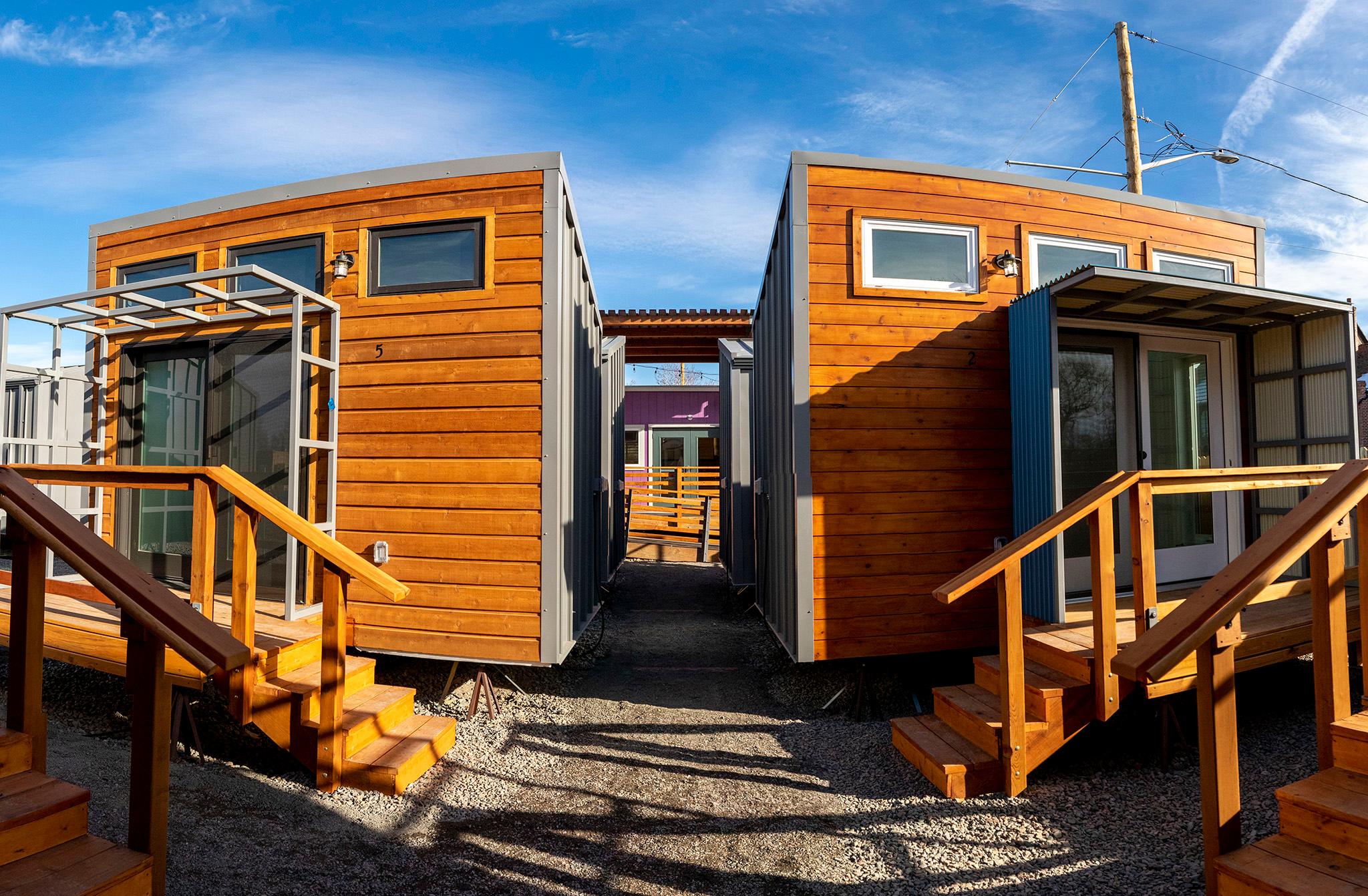Denver's tiny home community at 4001 Monroe St. is going from 24 to 44 homes, gaining a community center and getting a number of site infrastructure improvements. City Council approved the $500,000 contract with Colorado Village Collaborative on Monday.
Colorado Village Collaborative also reopened another one of its villages in May, specifically serving women, transgender and non-binary people. Colorado Village Collaborative CEO Dede de Percin said the timing is key, given the upcoming closure of the Rodeway Inn, a temporary pandemic shelter for women, transgender and non-binary people.
Once an experimental program, the expansion shows how temporary units like tiny homes and sanctioned camping sites for people experiencing homelessness have grown in Denver in recent years. Denver opened its first tiny home village in 2017. But it met with community pushback when the time came to renew its lease at 38th Ave. and Blake St., resulting in a move to Globeville. Denver's first safe outdoor campsites, opened in 2020, also faced pushback from community groups.
But in the years since, as the housing crisis has persisted, approaches like tiny home villages have become more normalized as a way to serve people experiencing homelessness. The sites seek to provide low-barrier, temporary housing options for people who often cannot access other shelters or just need time to get back on their feet.
"We're settling in as a track record of being responsible community members, we work with community agreements, we meet with the RNO's [Registered Neighborhood Organizations], and really just do everything we can to try to allay people's concerns and sort of prove ourselves as a good neighbor," de Percin said. "I don't think it hurts that the mayor elect has been out there talking about this pretty relentlessly."
In June, City Council voted to make safe campsites and safe parking sites a permanent part of Denver's zoning code, using the standards for tiny home villages as a guide. And during the spring mayoral election, mayor-elect Mike Johnston made tiny home villages a key part of his plan to address homelessness.
De Percin emphasized that while adding homes is important, a lot more work must be done to address homelessness.
"A lot of our time and effort goes into helping people along their journey to stable housing, however long that takes, and so it's not just the housing piece, it's the whole programmatic and services and support that go along with that," she said. "Just putting up housing is not going to, really I feel like, solve some of the longer term problems."
Editor's note: This article has been updated with comment from Colorado Village Collaborative CEO Dede de Percin.












